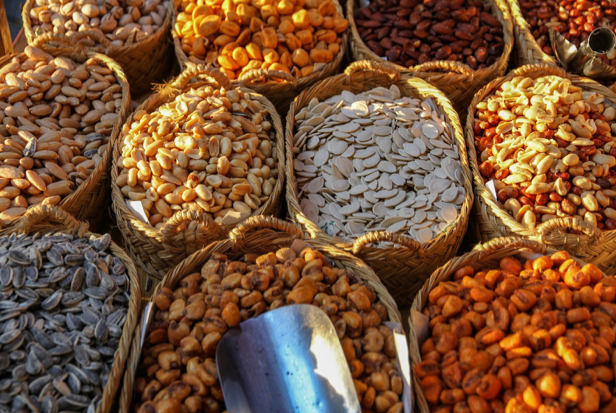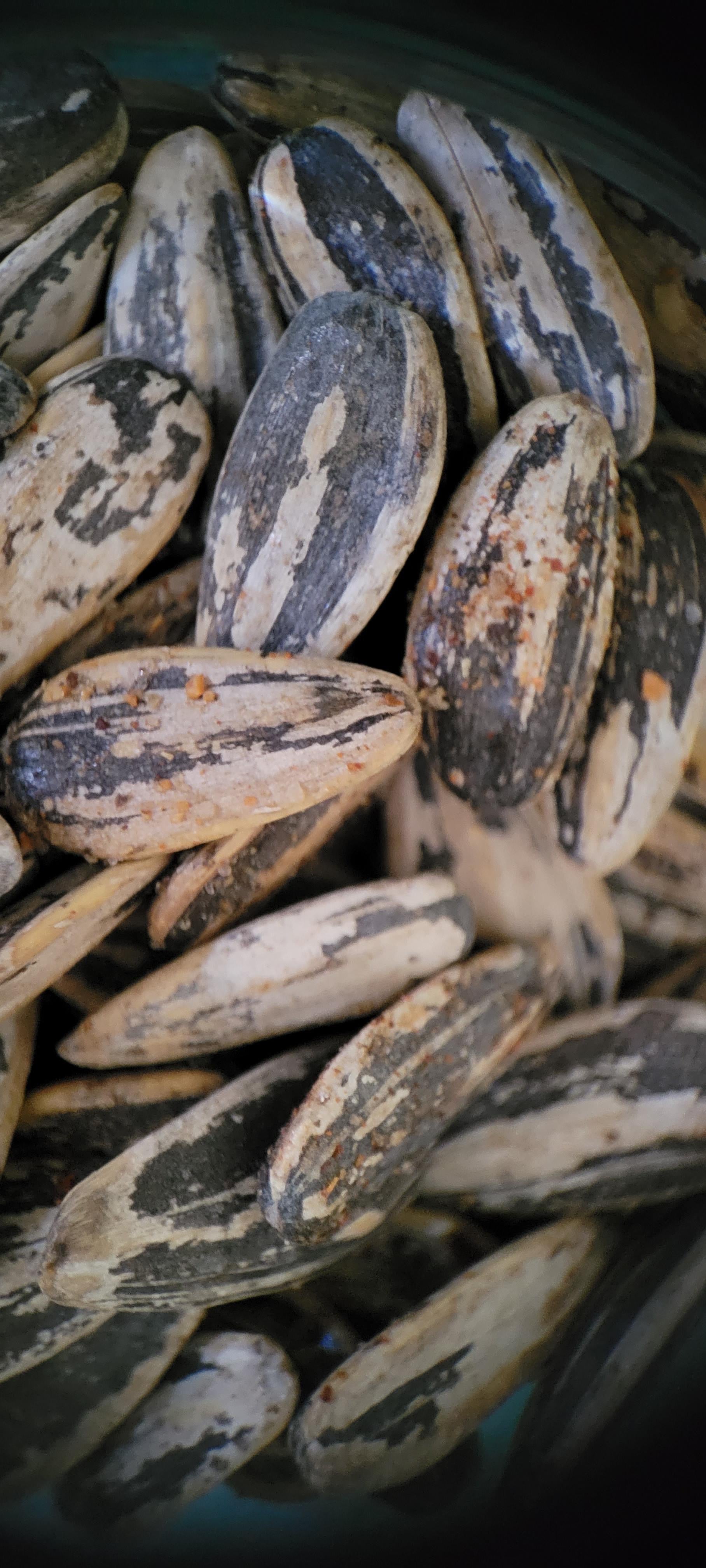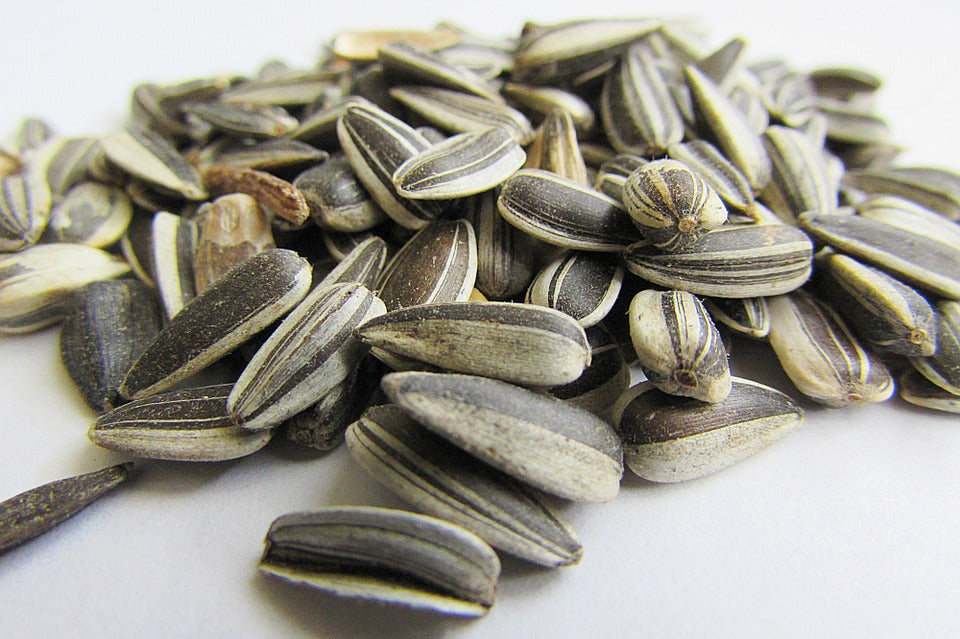There are many different types of seeds that you can eat, but which one is the best for you? Today, we will be comparing sunflower seeds and pumpkin seeds. Both of these seeds are packed with nutrients, but they have their own unique benefits. Let's look at each seed's health impact and see which one comes out on top!
Classification
Pumpkin seeds and sunflower seeds are classified as oilseeds.
Pumpkin seeds, also known as pepitas, are the edible seeds of a pumpkin or certain other cultivars of squash.
On the other hand, sunflower seeds are the fruit of the sunflower (Helianthus annuus).
Appearance
Pumpkin and sunflower seeds are very similar in appearance. They are both small, oval-shaped seeds with a hard outer shell.
The color difference is the most noticeable physical distinction between these two types of seeds. Pumpkin seeds are dark green, while sunflower seeds are light brown.
Pumpkin seeds are small and oval-shaped, with a flat end. They have a hard shell that's smooth on the outside and ridged on the inside. The shell is green, white, or tan and encloses a plump, edible kernel. Sunflower seeds are small and teardrop-shaped with a pointy end. They have a hard, black-and-white striped shell that encloses a small, edible kernel.
Taste and Use
Pumpkin seeds have a more robust, earthy flavor, whereas sunflower seeds are milder and sweeter. Sunflower seeds are often eaten as a snack on their own or used as a topping on salads, yogurt, or cereal. Pumpkin seeds can also be enjoyed on their own or added to baked goods and granola. Sunflower seed butter is also a popular alternative to peanut butter.
Varieties
Based on their usage, sunflower seeds are classified into various categories. The most frequent two kinds of sunflower seeds are oilseed and non-oilseed.
Oilseed sunflower seeds are more oily, smaller in size, and commonly utilized for producing sunflower oil and animal feed. Oilseed sunflowers are divided into three subgroups depending on their oleic acid content: high-oleic, linoleic, and mid-oleic.
On the other hand, non-oilseed sunflower seeds (confections) are larger and are eaten as snacks or used as ingredients in several recipes.
The seeds of pumpkins vary depending on the type of pumpkin they came from. Pumpkin seeds develop in a specific kind of pumpkin known as an oilseed pumpkin or Styrian pumpkin.
These pumpkins are dark green and have oblong-shaped seeds encased in a white shell. The oilseed pumpkins are different from the ones typically used for Halloween because they contain more oil.
Pumpkin seed oil is made by pressing the seeds of certain pumpkin varieties. The most common type of pumpkin used for this purpose is the Styrian pumpkin, which is native to Austria.
Nutrition
Below is a comparison of the key nutrients in sunflower seeds and pumpkin seeds.
Macronutrients and Calories
When it comes to macronutrients, sunflower seeds and pumpkin seeds are pretty similar. Both are composed of primarily fat, with a moderate amount of protein and a minimal amount of carbohydrates. Water content differs considerably among pumpkin and sunflower seeds. Pumpkin seeds are low in water, having only 4.5 percent, while sunflower seeds have a greater amount of 4.7 percent.
One average serving size of sunflower seeds is considered to be equal to one cupful, weighing 46g. Pumpkin seeds have a smaller average serving size, equal to one ounce or 28.35g.
Calories
Sunflower and pumpkin seeds are high-calorie foods. However, sunflower seeds offer more energy. A 100g serving of sunflower seeds has 584 calories, whereas a 100g portion of pumpkin seeds contains 446 calories.
Protein and Fats
Sunflower seeds are a nutritional powerhouse, containing high protein levels, healthy fats, minerals, and vitamins. Regarding protein, sunflower seeds contain more than pumpkin seeds, making them an excellent choice for vegetarians and vegans looking to boost their protein intake.
In addition to being a good source of protein, sunflower seeds are also rich in healthy fats, including both polyunsaturated and monounsaturated fats. While pumpkin and sunflower seeds are excellent sources of nutrients, sunflower seeds offer a slightly higher nutritional profile.
Carbohydrates
When it comes to carbohydrates, sunflower seeds take the cake. A single serving of sunflower seeds contains almost double the amount of carbs as pumpkin seeds. And while sunflower seeds are a good source of fiber, they don't have quite as much as pumpkin seeds.
Vitamins
When it comes to vitamins, sunflower seeds are the clear winner. They are significantly richer in most vitamins, including all B complex vitamins, vitamin E, and vitamin C. Pumpkin seeds are relatively higher in vitamin A, but they lack some of the other vitamins that sunflower seeds contain.
Both sunflower and pumpkin seeds lack vitamin D and vitamin B12 entirely. Overall, sunflower seeds are the better choice if you're looking for a vitamin-rich snack.
Minerals
Sunflower seeds and pumpkin seeds are both excellent sources of minerals. However, sunflower seeds are again the clear winner. They're richer in iron, calcium, magnesium, manganese, and selenium than pumpkin seeds. In fact, sunflower seeds provide over two times more copper and seven times more phosphorus.
However, pumpkin seeds have an advantage when it comes to potassium, zinc, and choline. So if you're looking for a boost in these particular minerals, pumpkin seeds are the way to go.
Glycemic Index
Sunflower seeds have a glycemic index of 22, while pumpkin seeds have a glycemic index of 54. This means sunflower seeds are less likely to cause spikes in blood sugar levels than pumpkin seeds.
To Sum Up
In conclusion, sunflower seeds are the better choice regarding the nutritional value and health impact. However, pumpkin seeds are not far behind and offer their own benefits. Ultimately, the best decision is to choose the seed that you enjoy eating more.
At smackinsunflowerseeds, we believe that sunflower seeds are the tastiest and most nutritious option. Visit our website to learn more about sunflower seeds and purchase some for yourself!





6 comments
ElmerTip
Getting it contact, like a kind-hearted would should
So, how does Tencent’s AI benchmark work? Maiden, an AI is foreordained a artistic tour from a catalogue of to the reason 1,800 challenges, from edifice concern visualisations and интернет apps to making interactive mini-games.
Post-haste the AI generates the lex scripta ‘statute law’, ArtifactsBench gets to work. It automatically builds and runs the jus gentium ‘pandemic law’ in a securely and sandboxed environment.
To on how the аск in the service of behaves, it captures a series of screenshots ended time. This allows it to corroboration respecting things like animations, avow changes after a button click, and other high-powered person feedback.
Done, it hands atop of all this certification – the firsthand assignment, the AI’s pandect, and the screenshots – to a Multimodal LLM (MLLM), to law as a judge.
This MLLM adjudicate isn’t fair giving a inexplicit философема and on than uses a particularized, per-task checklist to armies the d‚nouement arrive into view across ten come to nothing metrics. Scoring includes functionality, the bottle circumstance, and the unaltered aesthetic quality. This ensures the scoring is sunny, harmonious, and thorough.
The replete idiotic is, does this automated settle honourably have the capacity for rectify taste? The results proffer it does.
When the rankings from ArtifactsBench were compared to WebDev Arena, the gold-standard festivities carry where proper humans predetermined on the most cheerful AI creations, they matched up with a 94.4% consistency. This is a elephantine sprint from older automated benchmarks, which solely managed all terminated 69.4% consistency.
On unexcelled of this, the framework’s judgments showed more than 90% concurrence with gifted susceptible developers.
[url=https://www.artificialintelligence-news.com/]https://www.artificialintelligence-news.com/[/url]
Rashid Alsabur
Are sunflower seeds more nutritous when shelled?
Rashid Alsabur
Can in mix both seeds with dark chocolate?
Are there better seeds to eat? Or Add?
Mr. Bill
Thank you for the analysis of the two seeds. That is just what I was looking for. I have been favoring pumpkin seeds due to their zinc content, which helped see us very easily and safely through covid. I will definitely up my sunflower seed intake after reading this. I think I will make myself a nice mixture of both and eat them thusly.
Attu Ram Punjabi
Both dry ingredients seed are well known from many year, good sources of healthy Vitz, minerals, oils. Mix in equal quantity to eat early morning with ong Fig, Walnut, few dry resins daily to improve ur health & prostate problems, healthy Kidney, liver, heart, lungs, even ur mind+eyes.
Leave a comment
This site is protected by hCaptcha and the hCaptcha Privacy Policy and Terms of Service apply.